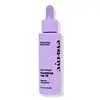What's inside
What's inside
 Key Ingredients
Key Ingredients

No key ingredients
 Benefits
Benefits

 Concerns
Concerns

 Ingredients Side-by-side
Ingredients Side-by-side

Isododecane
EmollientDimethicone
EmollientDimethiconol
EmollientCocos Nucifera Oil
MaskingTocopherol
AntioxidantAnise Alcohol
PerfumingSclerocarya Birrea Seed Oil
HumectantCamellia Japonica Seed Oil
EmollientLimonene
PerfumingLinalool
PerfumingCaprylic/Capric Glycerides
EmollientGardenia Taitensis Flower
Skin ConditioningRosa Canina Flower Extract
AstringentCoumarin
PerfumingHexyl Cinnamal
PerfumingParfum
MaskingCaprylic/Capric Triglyceride
MaskingPersea Gratissima Oil
Skin ConditioningHelianthus Annuus Seed Oil
EmollientRaphanus Sativus Seed Extract
Skin ConditioningRicinus Communis Seed Oil
MaskingArgania Spinosa Kernel Oil
EmollientCocos Nucifera Oil
MaskingOlea Europaea Fruit Oil
MaskingPrunus Armeniaca Kernel Oil
MaskingSclerocarya Birrea Seed Oil
HumectantAdansonia Digitata Seed Oil
EmollientAzadirachta Indica Seed Oil
Skin ConditioningPlukenetia Volubilis Seed Oil
EmollientCitrullus Lanatus Seed Oil
EmollientRosmarinus Officinalis Leaf Extract
AntimicrobialOryza Sativa Bran Extract
Skin ConditioningParfum
MaskingCaprylic/Capric Triglyceride, Persea Gratissima Oil, Helianthus Annuus Seed Oil, Raphanus Sativus Seed Extract, Ricinus Communis Seed Oil, Argania Spinosa Kernel Oil, Cocos Nucifera Oil, Olea Europaea Fruit Oil, Prunus Armeniaca Kernel Oil, Sclerocarya Birrea Seed Oil, Adansonia Digitata Seed Oil, Azadirachta Indica Seed Oil, Plukenetia Volubilis Seed Oil, Citrullus Lanatus Seed Oil, Rosmarinus Officinalis Leaf Extract, Oryza Sativa Bran Extract, Parfum
 Reviews
Reviews

Ingredients Explained
These ingredients are found in both products.
Ingredients higher up in an ingredient list are typically present in a larger amount.
Cocos Nucifera Oil is obtained from the kernels of the coconut fruit. In other words, this is coconut oil.
Coconut Oil is rich in fatty acids with lauric acid making up the majority of these. It also contains linoleic acid. Due to this high fatty acid content, coconut oil helps trap moisture and soften skin.
Despite being antibacterial, coconut oil may not be great for acne-prone skin. It is comedogenic and may clog pores. This ingredient may not be safe for malassezia or fungal acne.
Note: Coconut Oil should not replace your sunscreen for UV protection. Studies show it only blocks about 20% of UV.
This oil is non-volatile and has a light scent.
The term 'fragrance' is not regulated in many countries. In many cases, it is up to the brand to define this term. For instance, many brands choose to label themselves as "fragrance-free" because they are not using synthetic fragrances. However, their products may still contain ingredients such as essential oils that are considered a fragrance.
Learn more about Cocos Nucifera OilParfum is a catch-all term for an ingredient or more that is used to give a scent to products.
Also called "fragrance", this ingredient can be a blend of hundreds of chemicals or plant oils. This means every product with "fragrance" or "parfum" in the ingredients list is a different mixture.
For instance, Habanolide is a proprietary trade name for a specific aroma chemical. When used as a fragrance ingredient in cosmetics, most aroma chemicals fall under the broad labeling category of “FRAGRANCE” or “PARFUM” according to EU and US regulations.
The term 'parfum' or 'fragrance' is not regulated in many countries. In many cases, it is up to the brand to define this term.
For instance, many brands choose to label themselves as "fragrance-free" because they are not using synthetic fragrances. However, their products may still contain ingredients such as essential oils that are considered a fragrance by INCI standards.
One example is Calendula flower extract. Calendula is an essential oil that still imparts a scent or 'fragrance'.
Depending on the blend, the ingredients in the mixture can cause allergies and sensitivities on the skin. Some ingredients that are known EU allergens include linalool and citronellol.
Parfum can also be used to mask or cover an unpleasant scent.
The bottom line is: not all fragrances/parfum/ingredients are created equally. If you are worried about fragrances, we recommend taking a closer look at an ingredient. And of course, we always recommend speaking with a professional.
Learn more about ParfumSclerocarya Birrea Seed Oil is the oil expressed from the seeds of the Marula plant. In South Africa, Marula is called "an elephant's favorite treat".
Marula seed oil is a non-fragrant oil. It is rich in fatty acids, such as oleic, linoleic, palmitic, stearic, and more. These fatty acids help hydrate the skin.
Other components of marula seed oil include vitamin E and antioxidants such as flavonoids.
Due to the fatty acid content, this ingredient may not be fungal-acne safe.
Learn more about Sclerocarya Birrea Seed Oil